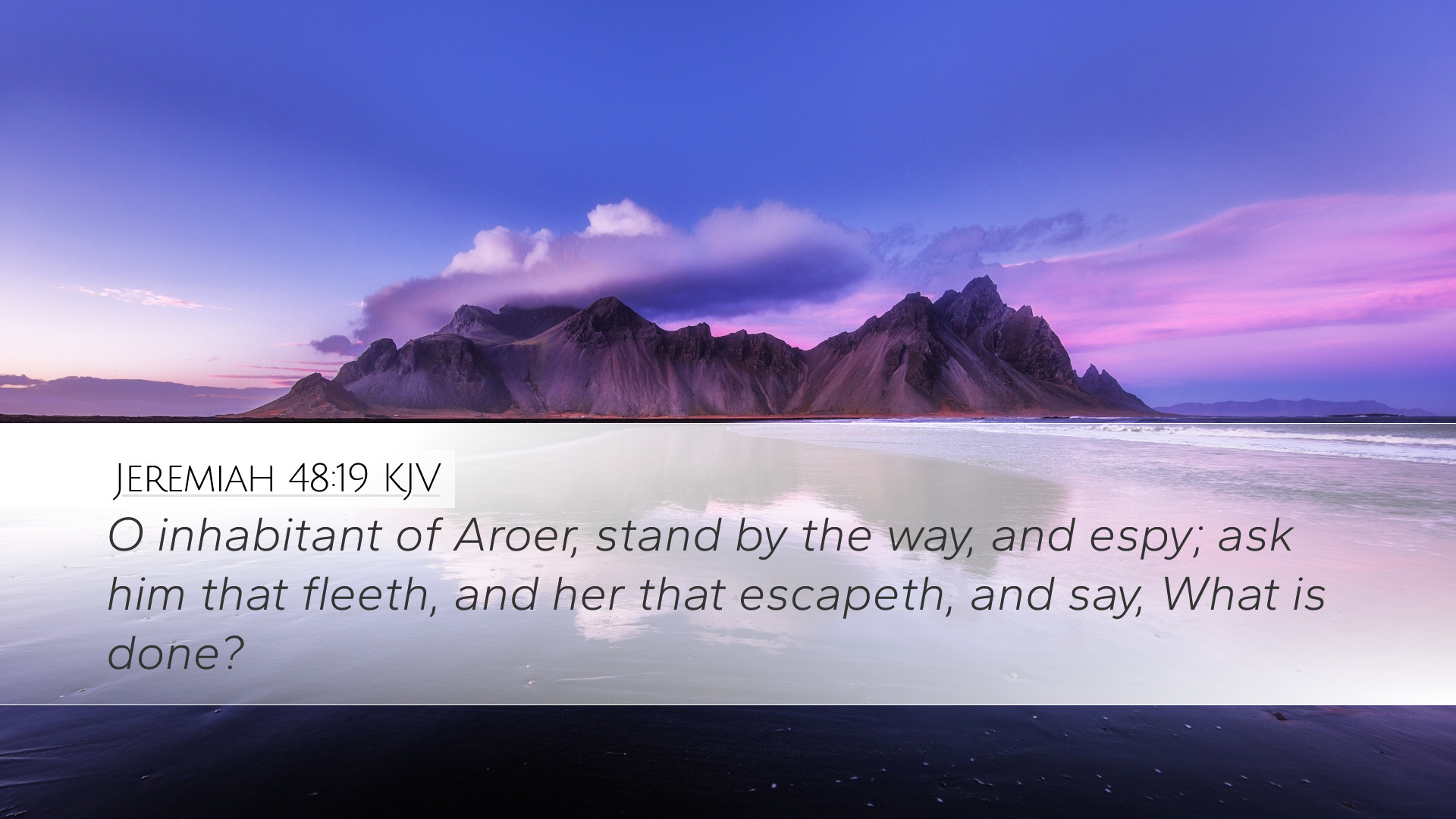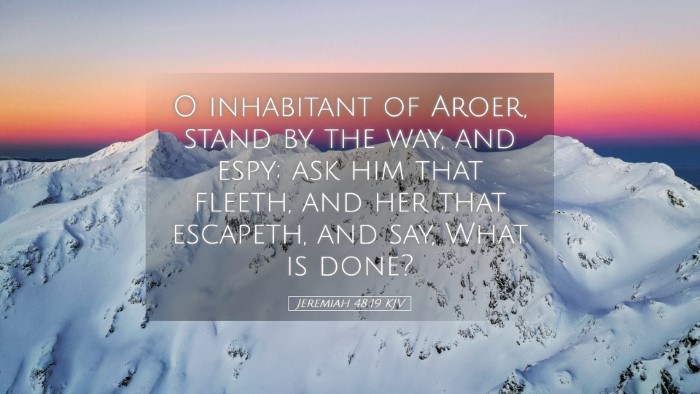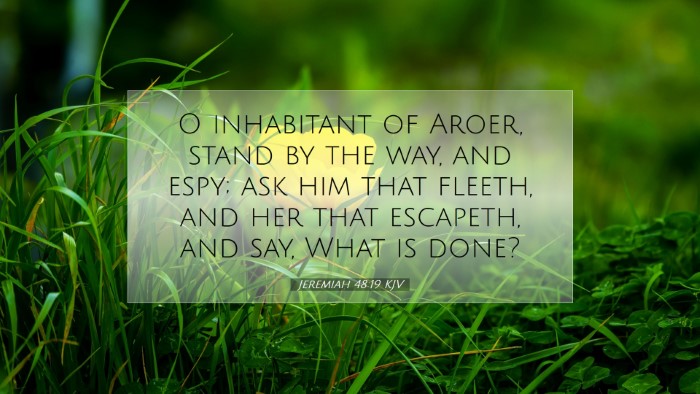Commentary on Jeremiah 48:19
Verse Context: Jeremiah 48:19 states, "O inhabitant of Aroer, stand by the way, and watch; ask him that fleeth, and her that escapeth, and say, What is done?" This verse occurs within the broader prophecy concerning Moab, foretelling its destruction due to its arrogance and idolatry.
Literary and Historical Context
This chapter of Jeremiah offers a lamentation over Moab, a nation often at odds with Israel, characterized by pride and trust in its own strength and gods. Aroer, mentioned here, was a location on the northern border of Moab, and the command to the inhabitants serves as an urgent call to vigilance in a time of impending doom.
Commentary Insights
Matthew Henry’s Perspective
Matthew Henry emphasizes the significance of the watchmen's role in this dire moment. He interprets the call to "stand by the way, and watch" as a spiritual metaphor urging the people of God to remain vigilant and alert to fulfill their prophetic duties. Henry notes:
- Watchfulness: The need for constant vigilance in faith, especially in times of crisis, reflects the spiritual state of the people and their relationship to God.
- Seeking Knowledge: The directive to "ask him that fleeth, and her that escapeth" signifies the importance of gathering information about God’s judgment, illustrating how God want His people to be aware of the impending judgment and the seriousness of their situation.
Albert Barnes’ Insights
Albert Barnes provides a detailed exposition on the geographical and symbolic implications of Aroer. He articulates:
- Geographical Significance: Aroer is a boundary city, symbolizing the point at which Moab's defenses begin to crumble. Its mention directs the focus on destruction that looms closer.
- Spiritual Accountability: Barnes speaks to the accountability of nations and individuals, inferring that those who witness the calamity have a responsibility to reflect God's judgment and communicate it accurately.
Adam Clarke’s Contribution
Adam Clarke offers a nuanced understanding of the verse in light of the covenantal relationship between God and Israel. He posits that the inhabitants of Aroer represent those who are caught between the judgments of God and the lingering hope of redemption:
- Emotional Recollection: Clarke touches on the emotional aspects at play—fear, flight, and the pursuit of safety, reminding readers that the human response to divine judgment often elicits panic and despair.
- Dialogue and Inquiry: The call to ask 'What is done?' opens up a conversation about the nature of prophecy—how the faithful are called to understand and communicate God’s actions and intentions in the world.
Theological Implications
The theological reflections on Jeremiah 48:19 deepen understanding of God's judgment and mercy. Several themes resonate strongly:
- The Nature of Divine Judgment: This verse encapsulates God's justice in response to sin and pride, demonstrating that no nation or individual can escape the consequences of turning away from Him.
- The Role of the Witness: It emphasizes the role of those tasked with proclaiming God’s truth and observing the signs of the times. In a broader ecclesiastical context, it speaks to the church's mission to communicate the gospel in both times of prosperity and distress.
- Call to Vigilance: The repeated call for watchfulness serves as a timeless reminder to all believers to remain alert in their spiritual walks, thereby fulfilling their responsibilities as ambassadors of Christ.
Application for Today's Believers
For pastors, students, and theologians, Jeremiah 48:19 can serve as a powerful reflection point:
- Personal Reflection: Believers are prompted to assess their own lives in light of this passage—are they watching for the signs of God’s work in their lives and the lives of others?
- Communal Responsibility: This text encourages discussions within church communities about how they respond to God’s messages and to act wisely in sharing those truths with others.
- Missional Implications: The urgency within this verse calls for an active mission to seek the lost and deliver the truth of God’s mercy amidst His judgments.
Conclusion
Jeremiah 48:19 serves as a poignant reminder of the complexities of divine judgment and mercy. As highlighted by the commentaries, the themes of vigilance, accountability, and the prophetic voice are essential for understanding one’s walk with God. In acknowledging the weight of this verse, believers are called not only to reflect on their own lives but also to take proactive steps in proclaiming God’s truth in a world in dire need of hope and redemption.


